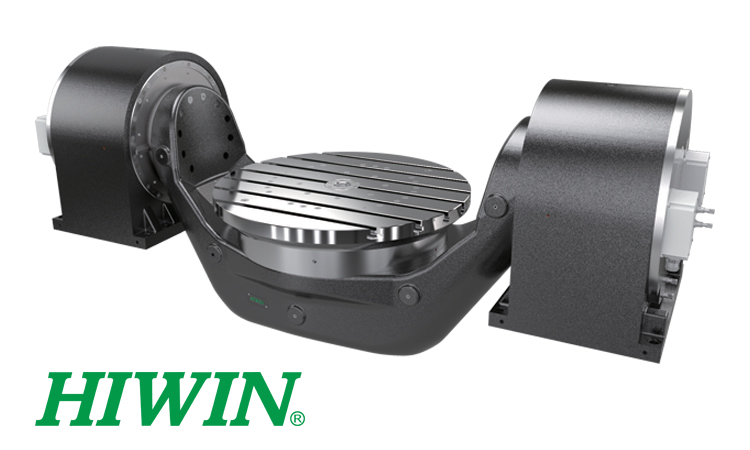Highly-Functional Material Week Osaka 2025 Positions Japan at…

Why Enterprise AI is Important for Manufacturing Sector | ENGINEERING REVIEW |Manufacturing | Industrial Sector Magazine & Portal
While the promise of artificial intelligence transforming businesses is appreciated by leaderships all across, the way AI is looked at, thought about, adopted, and used decides its impact on the organization.
The enterprise AI is the implementation of AI, which is seen as a strategic initiative aligned with the business strategy and goals, implemented across the enterprise, incorporates the information architecture and the data strategy and is the integrated and holistic business initiative to acquire a leadership position in the market and gain competitive advantage by becoming a data superpower. Enterprise AI helps organizations to make data-driven decisions, improve business processes, transform the products, transform the business model resulting in growth in revenue, improvement in profitability, increased efficiency, reduced waste, increased resilience, reduced risks, and increased customer engagement.
Manufacturing organizations have the potential of implementing AI in various functions like manufacturing operations, supply chain, sales & marketing, service and support, product development, Human resources, etc. AI in manufacturing enterprises has various applications, to power up their AI-led digital transformation.
AI for Supply Chain
Demand estimate lends accuracy and effectiveness of the planning process. The cross functional process of demand planning uses demand forecast as important input. AI can help in optimizing the Inbound supply chains responding to the changes in demand and predicting the supply situation exploiting many influencing external factors using simulations to optimize the inventory and achieve resilience. The accuracy of the estimate and agility of the process defines effectiveness of the planning process.
AI for Production Planning
Production planning and scheduling use processes like MRP, CRP, and APS. Production planning depends heavily on standard lead times, capacity, resource availability, and many other factors, which have certain uncertainties associated with them. These assumed values may not be accurate in case of uncertainties, where the use of historic data and AI can help in creating realistic and accurate plans and schedules.
AI for Manufacturing Processes
AI enables processes to make real-time decisions using the patterns from the historic data and adjust the parameters to optimize the outcome. AI provides the edge in the control strategy of the machine and makes it self-optimizing system. Certain manufacturing processes like full penetration pipe welds where human judgement is required to adjust to the variations in physical parameters can be automated by using sensors and AI[1].
[1] https://www.universal-robots.com/about-universal-robots/news-centre/launching-new-artificial-intelligence-pipe-welding-system/In case of steel manufacturing, the process parameters like furnace temperature depends upon the material composition of iron intake. Some steel producers have implemented AI to optimize the setting based on the intake material composition and reduce the energy consumption[2].
AI for Material Handling
It is very challenging for a robotic arm to to pick a component from a bin where they are randomly oriented. This can be achieved by implementing Vision-based AI for image recognition where the robot arm can sense the orientation of the component in the bin, adjusts orientation of the end effector and picks the component.
AI Powered Predictive Maintenance
Traditionally maintenance has two types, breakdown maintenance and preventive maintenance. The breakdown maintenance approach maximizes the useful life of the machine part, however at the risk of machine down time. The preventive maintenance maximizes the machine uptime by sacrificing on the useful life of the machine part. There is always a tradeoff between useful life of machine part and machine uptime. Predictive maintenance, on the other hand, conquers this tradeoff situation by maximizing the machine part life with no breakdown.
The machines generate a huge amount of data while running. The breakdown data is also available in the ERP or in the maintenance logs. Data for other related parameters is also available in the ERP. The external data like weather, etc. if relevant can be acquired and AI can find patterns out of this data to effectively predict the breakdown of the machine. The maintenance can be planned accordingly to maximize both useful part life as well as maximum machine uptime.
AI for Product Transformation
Gartner predicts that by 2025, the top 50 consumer goods manufacturers will have invested in a brand app using AI, embedded technology in the product[3] . Manufacturers are embedding IoT sensors and AI to create a totally new level of value for customers. This vision also provides an opportunity to create a new data product and a new business model. It gives a scope to modify the existing products and make them ‘smart’. The data generated through the sensors provide insights that help in product improvement and can be monetized. The associated mobile App through immersive experience powered by AI provides end-to-end engagement with customers.
AI for Customer Experience
Gartner predicts that by 2024, organizations providing a total experience will outperform competitors by 25% in satisfaction metrics for both customer and employee experience[4].
[2 https://www.bcg.com/publications/2018/artificial-intelligence-factory-future [3] https://www.gartner.com/en/newsroom/press-releases/2021-07-28-gartner-identifies-top5-manufacturing-trends-2021 [4] https://www.gartner.com/en/newsroom/press-releases/2021-07-28-gartner-identifies-top5-manufacturing-trends-2021The customer experience across the entire life cycle is very critical for customer satisfaction and retention. The needs will differ at every stage of the life cycle. AI based customer segmentation and persona identification helps in customizing the communication which resonates with every type of the customer.
The availability of agents for attending to any concern of the customer is very vital for continued engagement. The Cognitive AI based virtual assistance is the most preferred channel in this context. It can be designed to be able to handle multiple languages, to sense the tone of the query and change the response to provide soothing experience to the customer.
Enterprise AI for Transformation
AI adoption for digital transformation is no more a subject of choice, and it is better for the leaders to take immediate actions so as to become a data superpower. Enterprise AI adoption will provide an opportunity for manufacturing organizations to grow their business, align their business model to be able to compete with the digitally born organizations, improve their operational efficiency and retain the customers. Enterprise AI adoption will make the organizations ready for scaling new heights in the most competitive environment with improved capability and strategic ROIs.
Article by Suresh Shakkarwar,
Head – Technology, India, Findability Sciences









